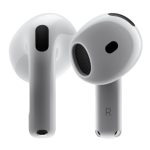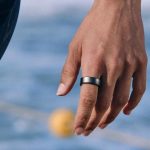HMD research shows parents’ regret and distress over their child’s smartphone use
What is the right age to give a child their first smartphone? There is no right or wrong answer but new research from smartphone manufacturer HMD shows not every parent gets it right.
HMD (Human Mobile Devices) has revealed results of a survey of more than 10,000 parents from around the world and it found 11 was the average age when a child received their first smartphone.
But the survey found that more than half said they regretted their decision to expose their child to a smartphone at such a young age.

A third responded saying they had this regret because it had negative effects on their child and, in some cases, changed their personality.
This plays into concerns about the impact of social media apps which is part of the smartphone experience.
And 70 per cent of parents say they now have less quality time with their child after giving them a smartphone while 55 per cent said the phone was also the centre of arguments.
Other findings included 77 per cent of Australian parents think their child is in danger using social media because it puts too much pressure on them and is not ideal for their mental health.
The research also showed 80 per cent of Australian parents want schools to get involved and educate their child on the dangers of social media. This comes at a time where schools are choosing to ban phones.
And 80 per cent of Aussie parents are also concerned a smartphone would expose their child to online stranger danger with more than half admitting they are not aware of what their child gets up to with their smartphone.
A third of parents have even admitted to crying over their child’s phone obsession.
More than 60 per cent of parents say their child sleep has been impacted by smartphone use and it also has reduced the amount of time they spend playing outside.
But more than half of parents admit a smartphone can have a positive effect on their child and help them in education as well as allowing them to stay in touch with friends.
“It’s clear that Australian parents are struggling to find the balance between giving their children the benefit and freedom of connectivity while also teaching them about the responsible use of technology,” says Brenden Folitarik, GM Australia and Oceania, HMD.
“This research is the first of an ongoing commitment from HMD to stay close to our consumers and be part of the solution.”
HMD has been active in reducing the amount of time customers can spend on devices by releasing more dumb phones with less features which are aimed at those users who want to reduce their screen time and social media use.
Two thirds of Australian parents are calling for a child-friendly phone that would allow them to manage usage with reduced access to social media and other apps that may put their child in danger.
“We’re delighted that HMD is committed to addressing the glaring gap in the market for child-friendly phones through this project,” says Joe Ryrie Co-founder of Smartphone Free Childhood.”
“Their research into children and smartphones is yet more evidence of the impossible position that parents find themselves in today.
“We either give our children access to a device they might not be ready for or choose not to and risk alienating them from their peers.
“It’s an issue that the 100,000+ parents who’ve joined our community since February are battling with on a daily basis, and we know that solving it requires a collaborative effort between parents, children, government and tech companies.
“Parents in our community are crying out for a phone which is desirable to children but isn’t designed to steal their attention.
“So we’re very excited about collaborating with HMD to help define what a modern child-friendly phone should be.”











